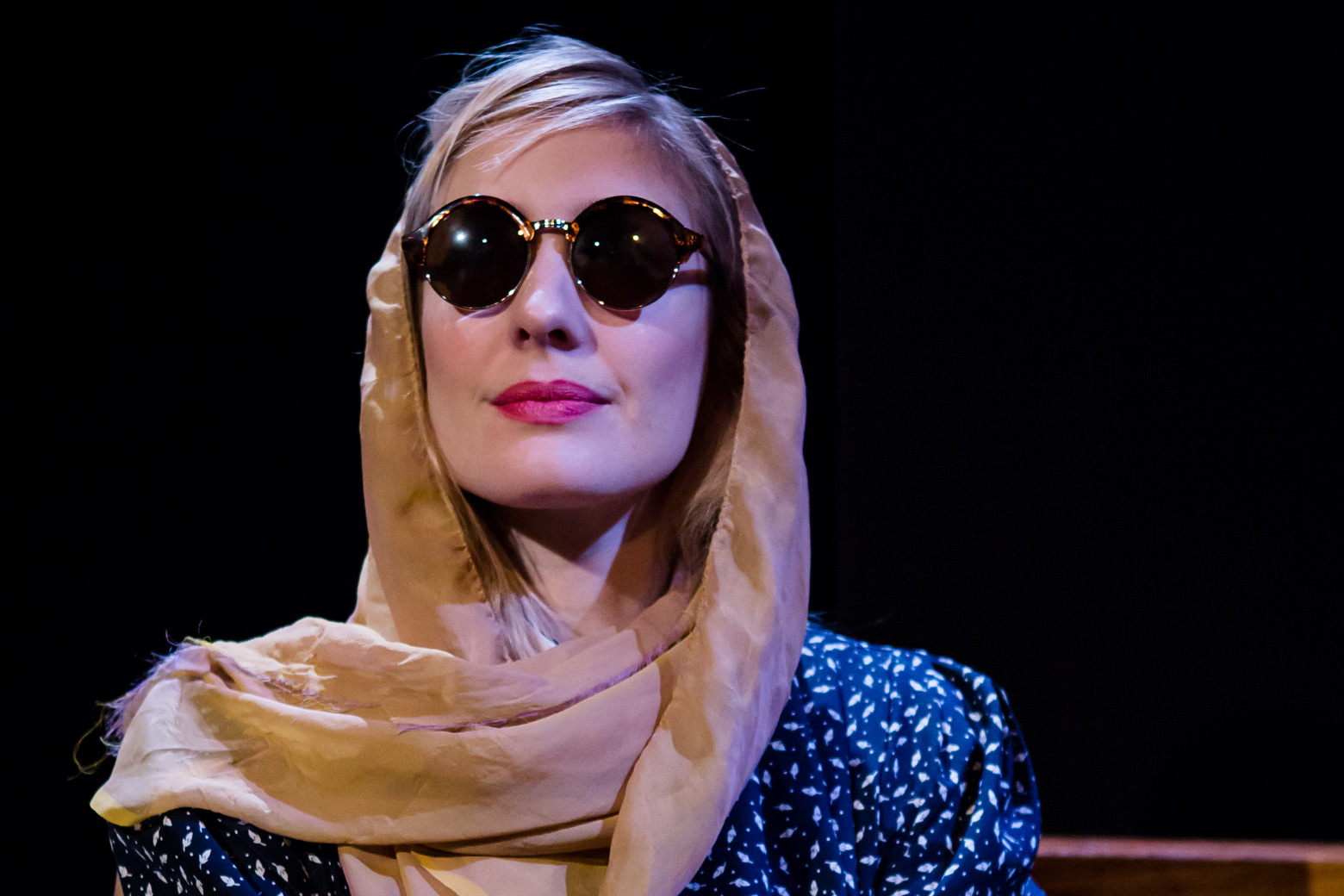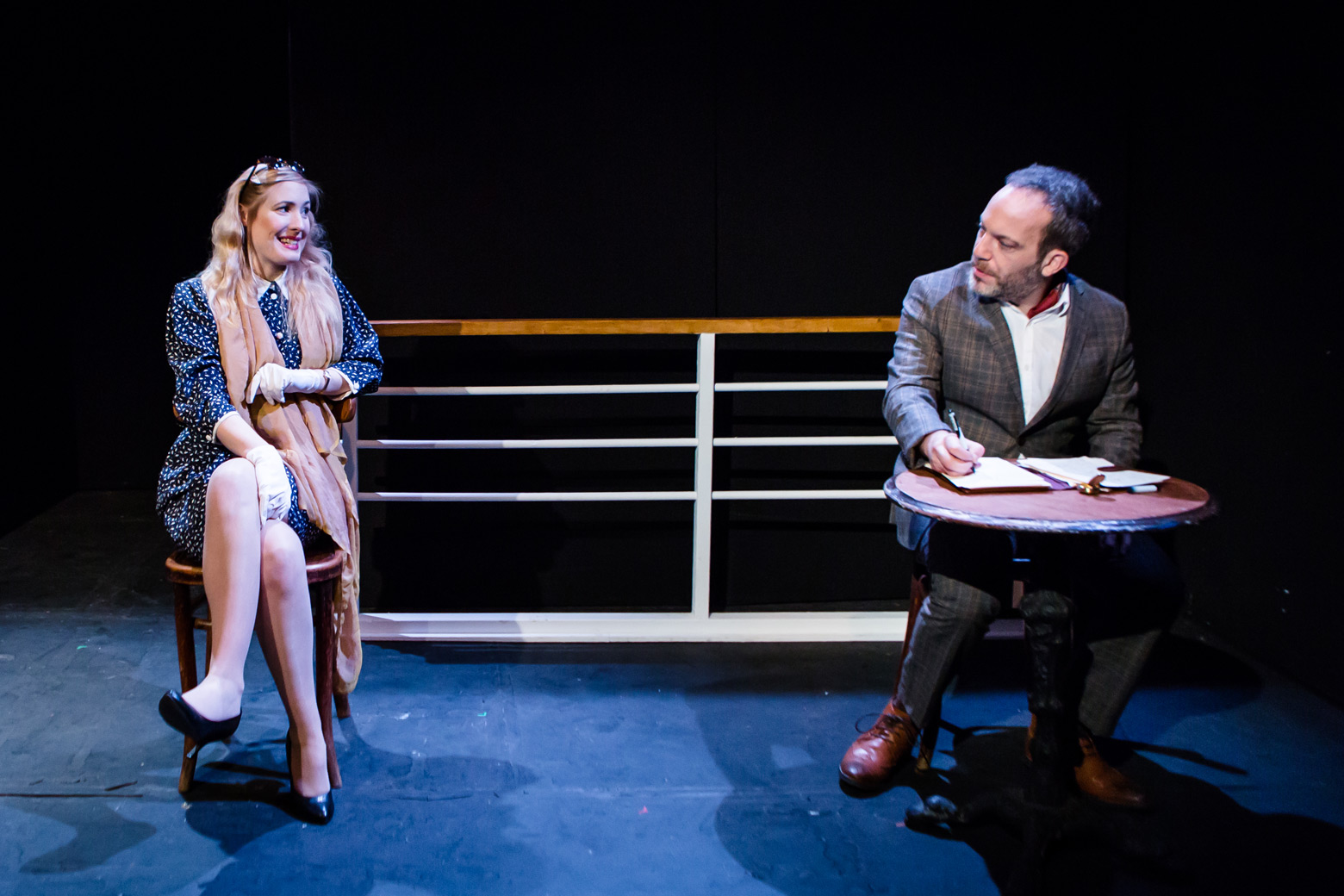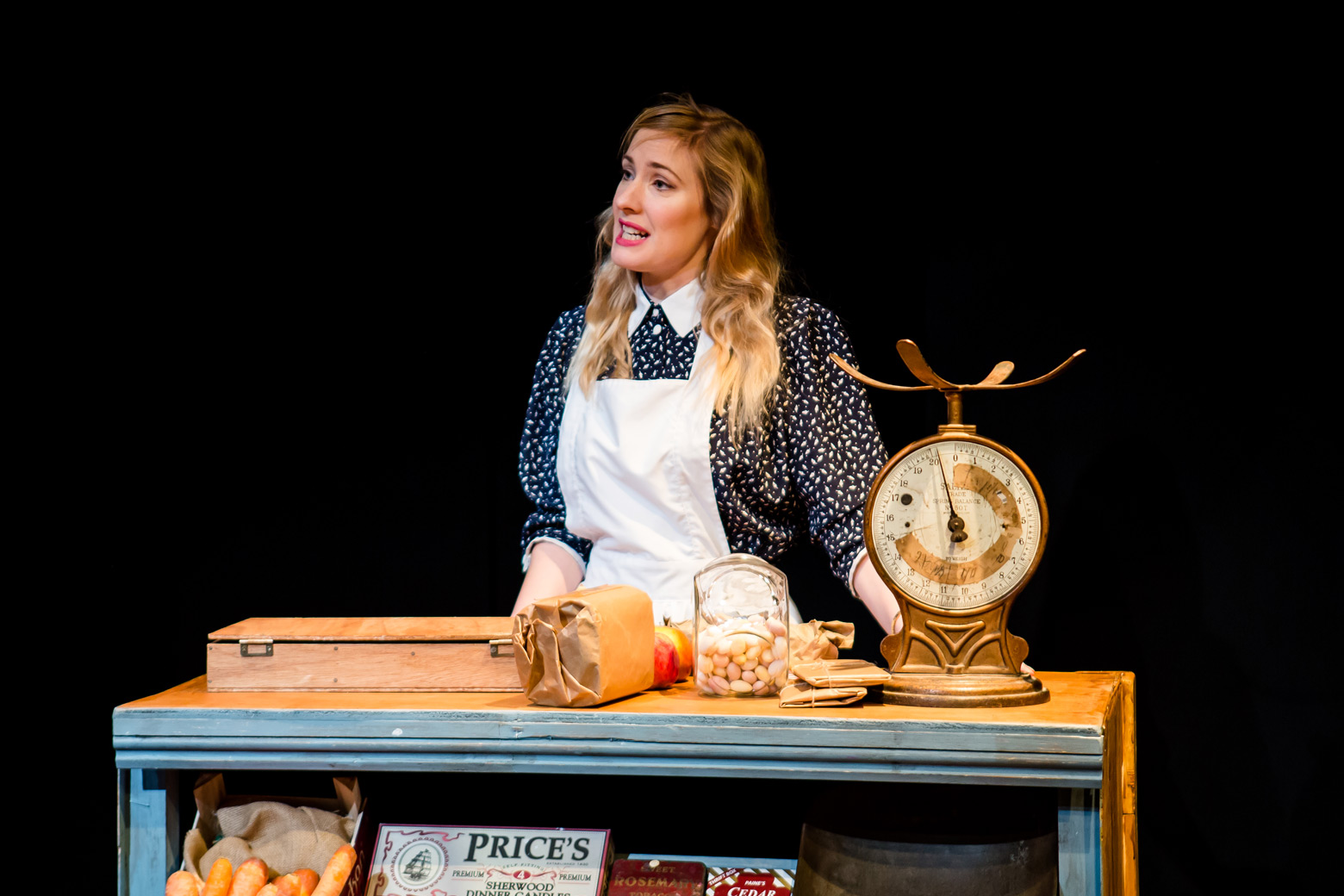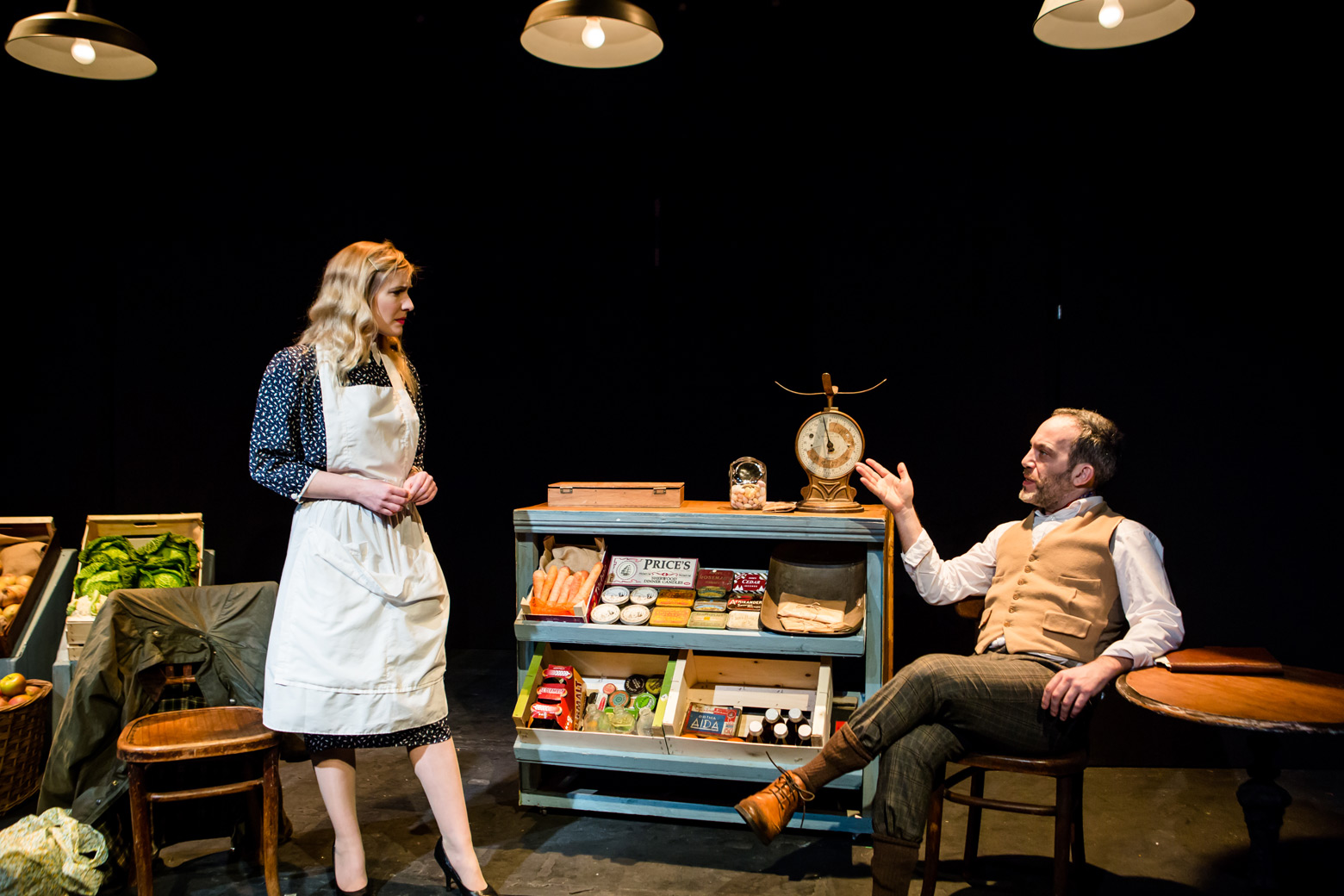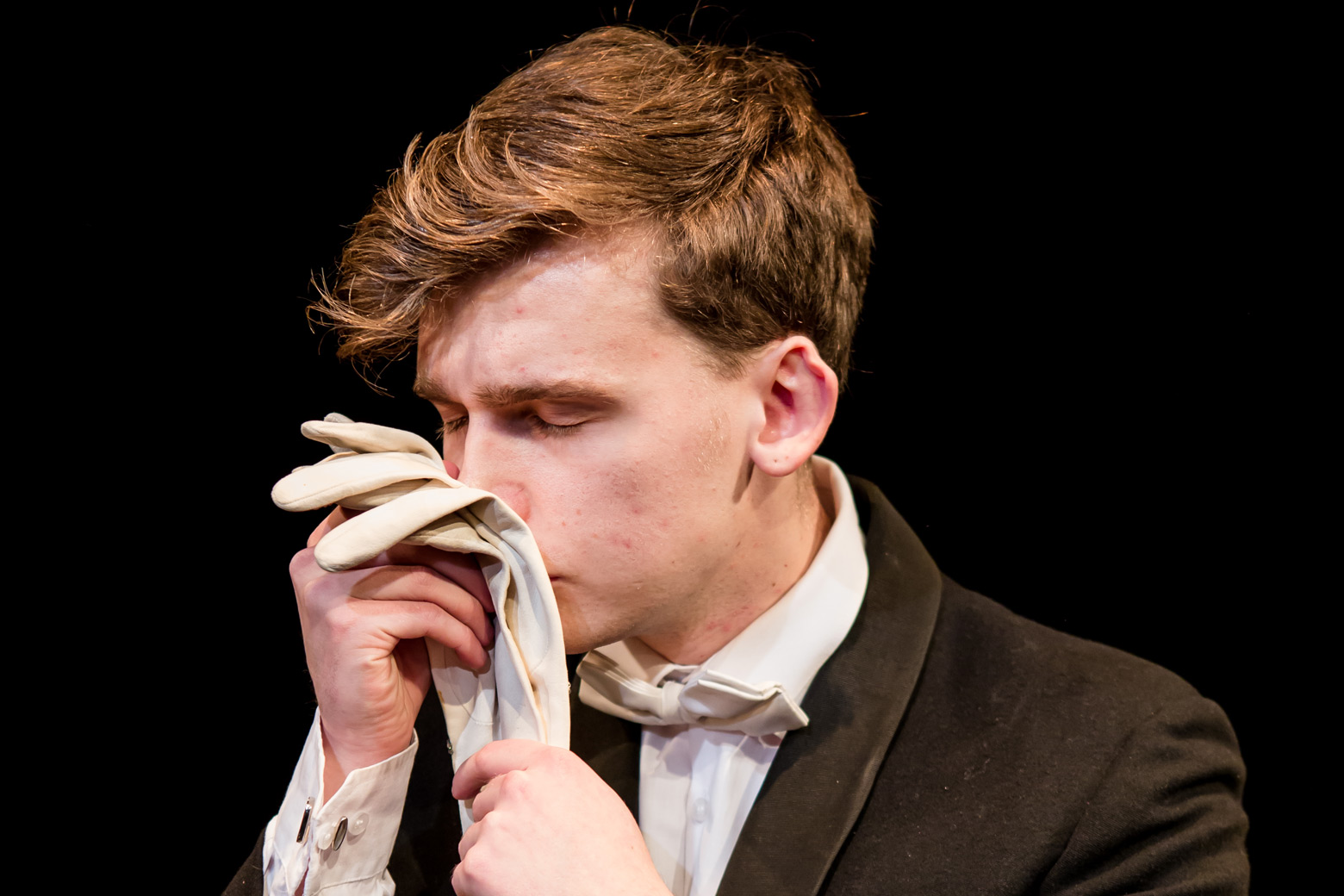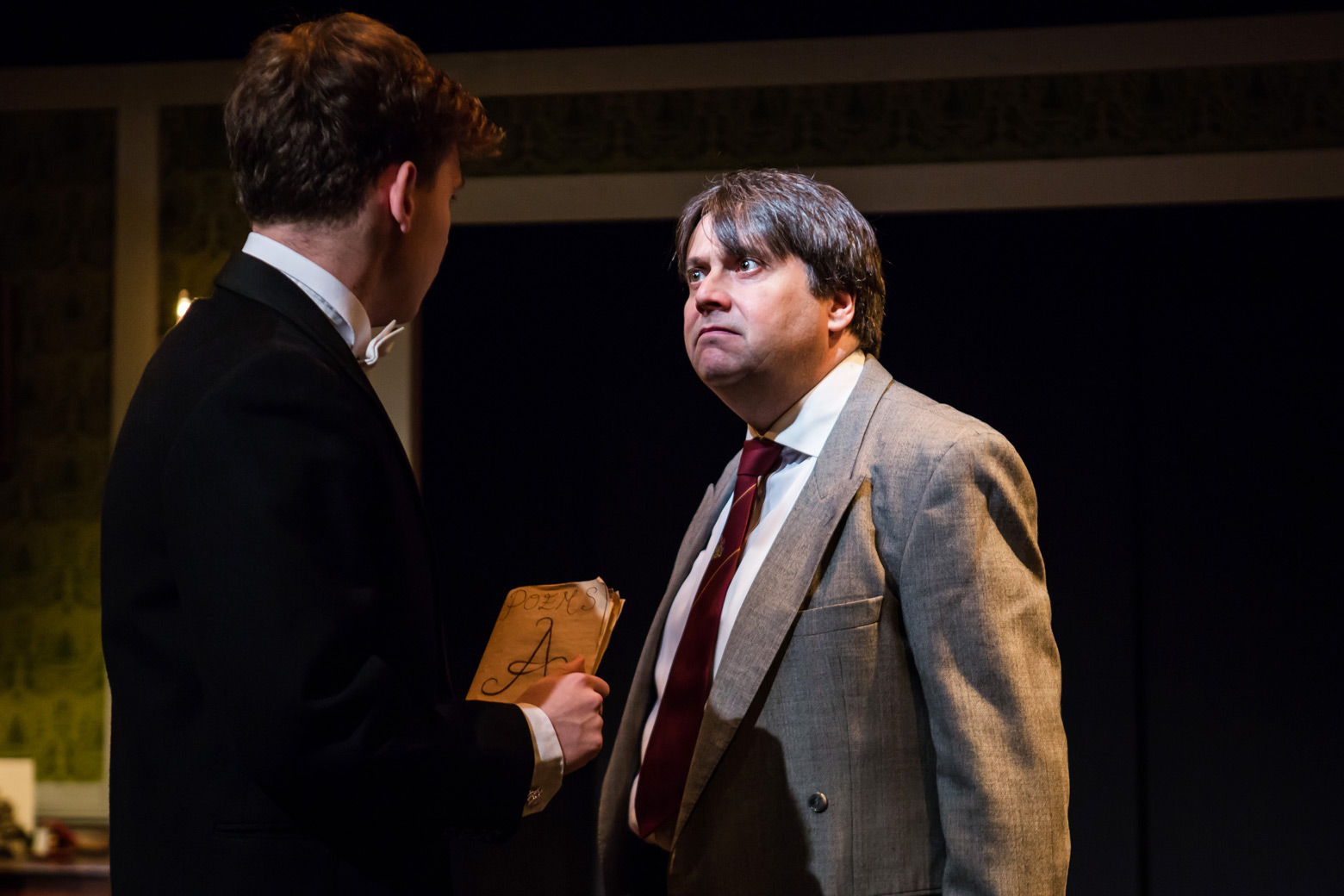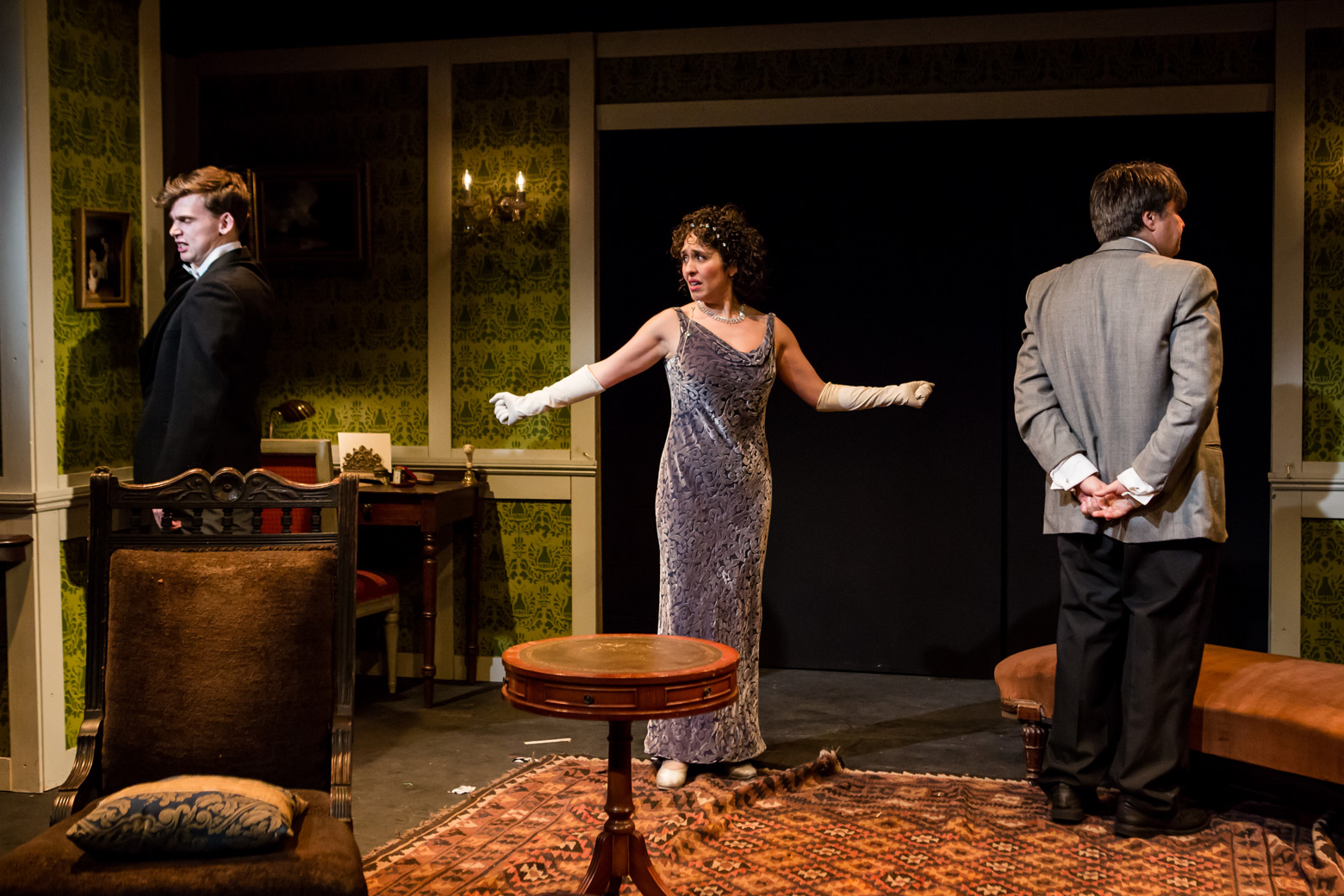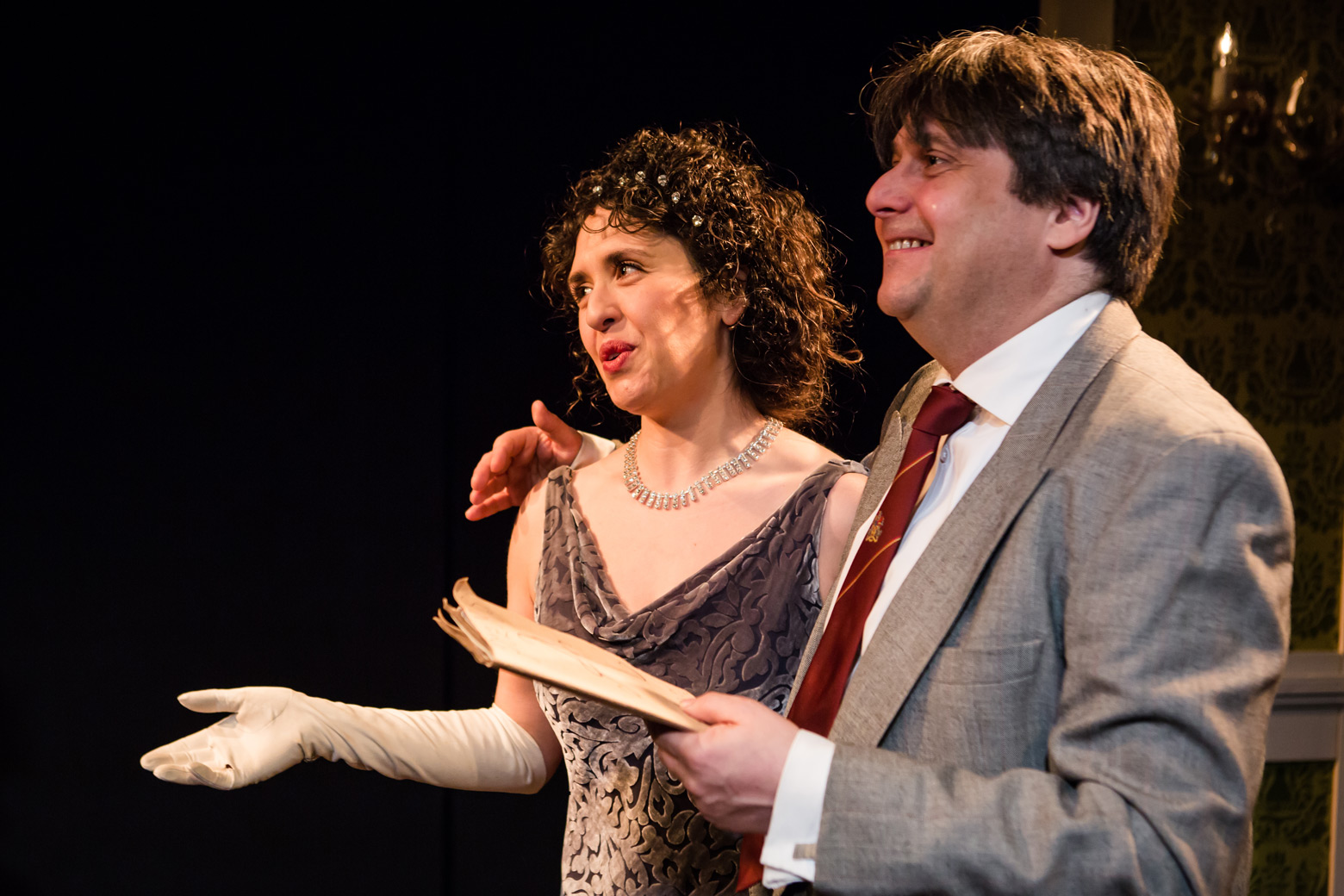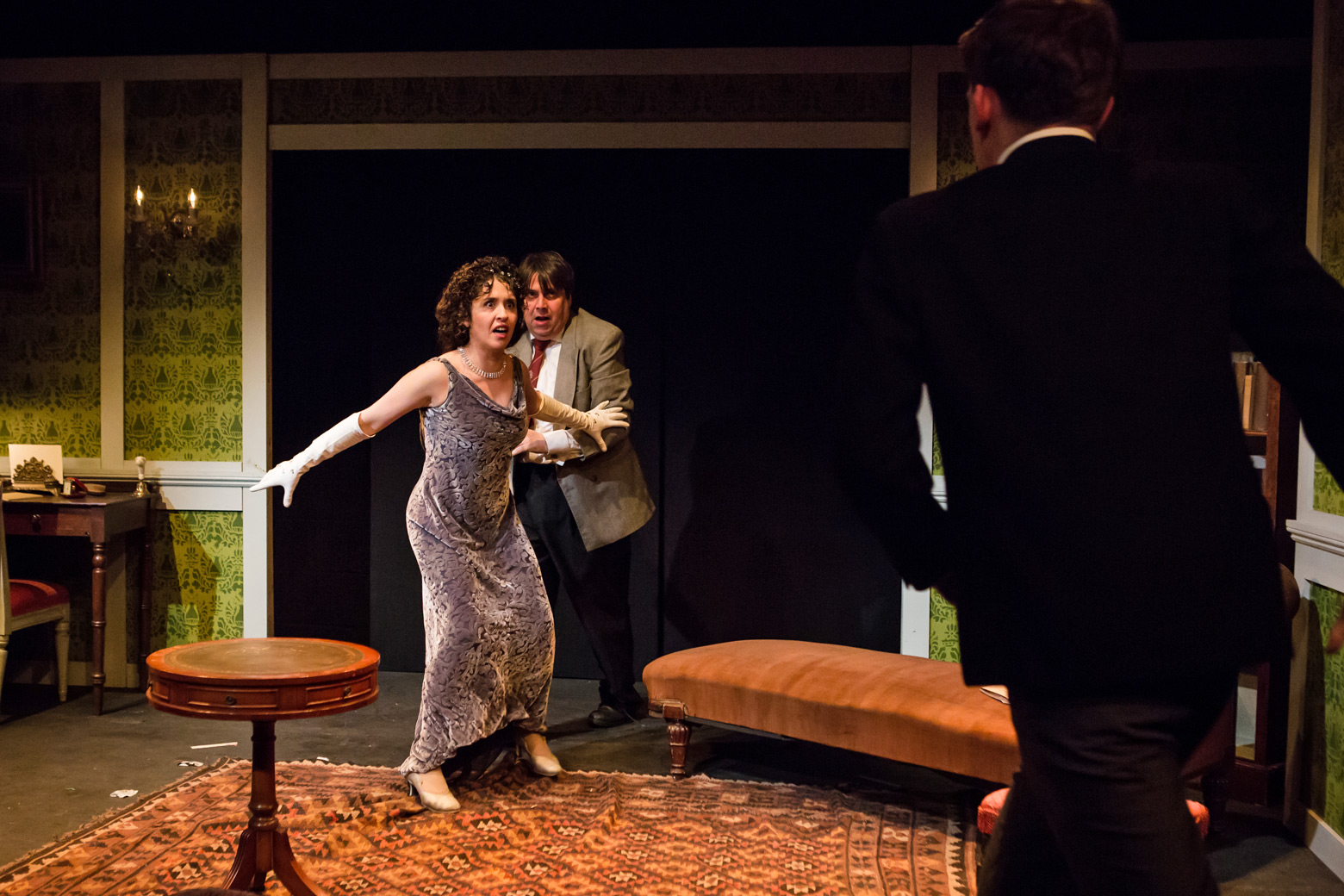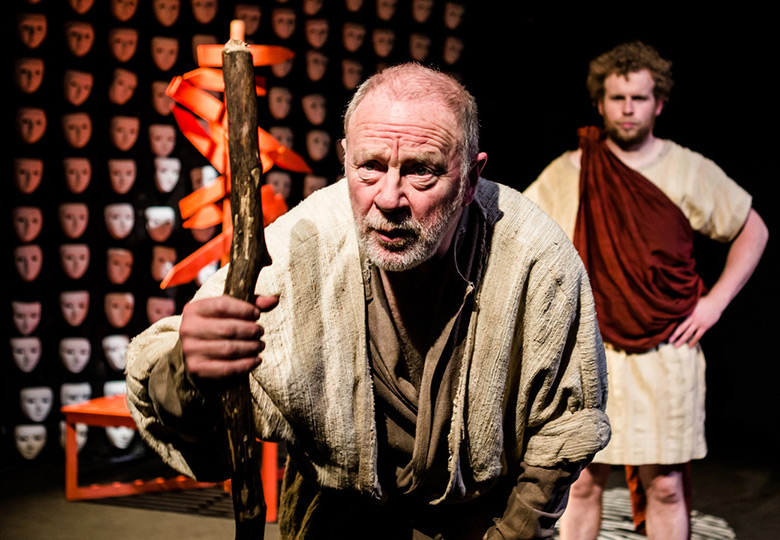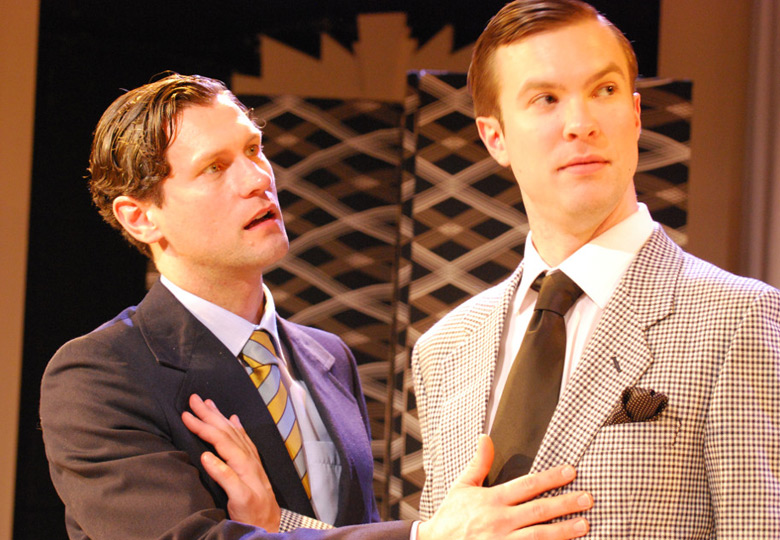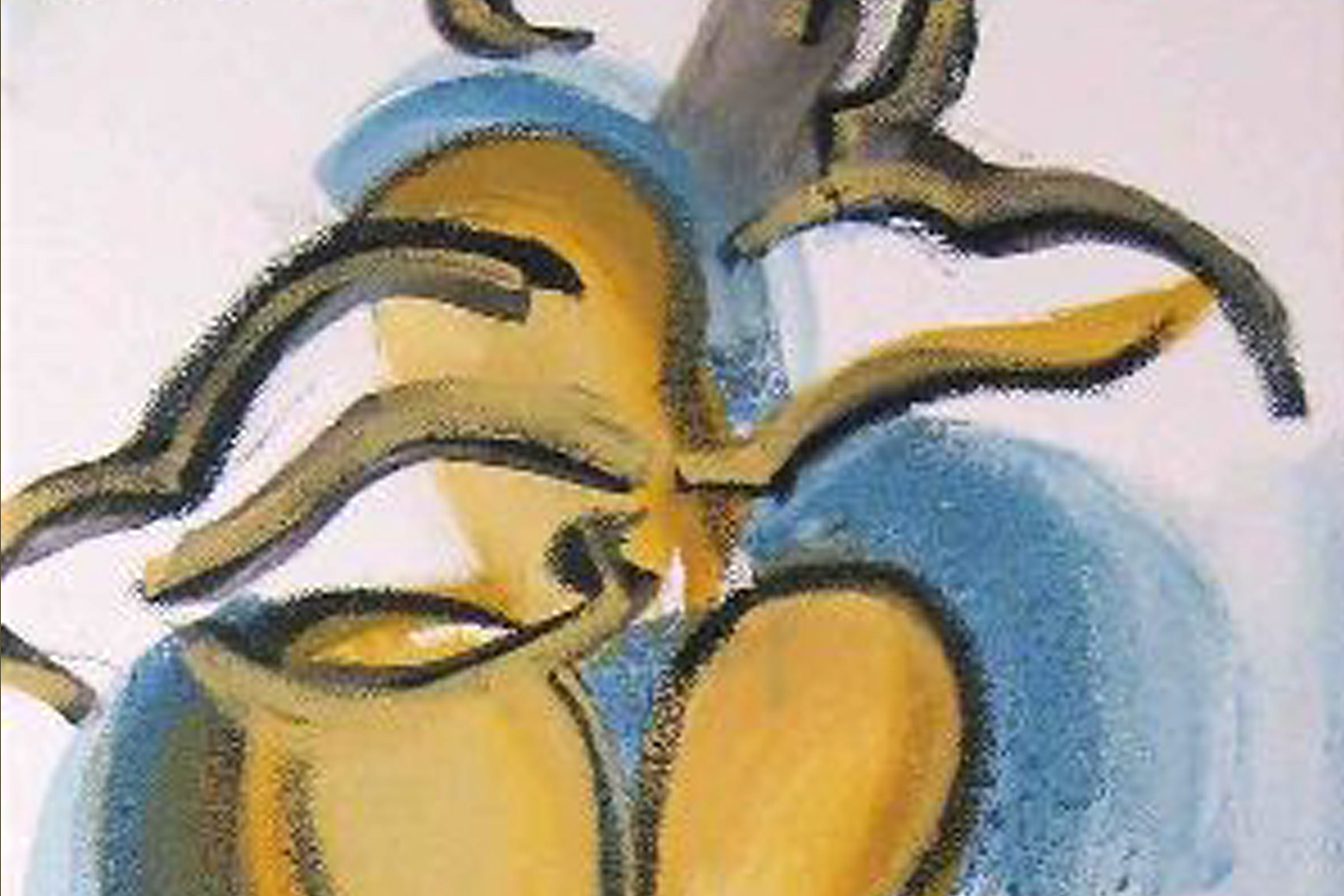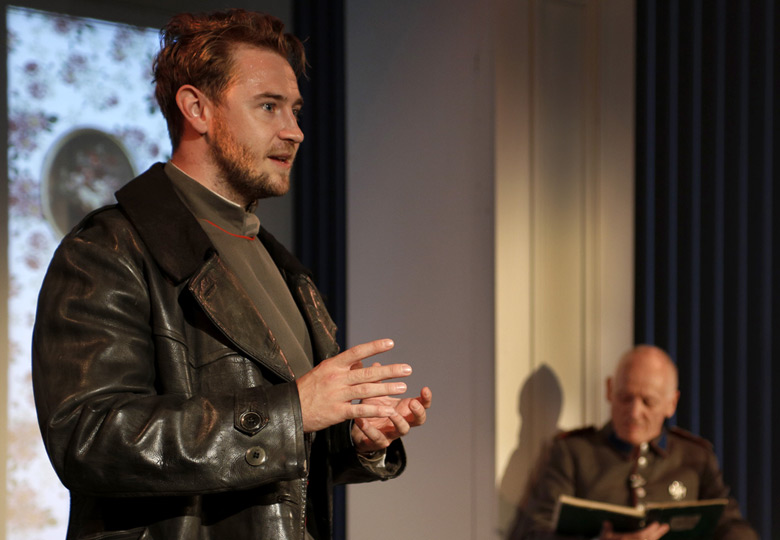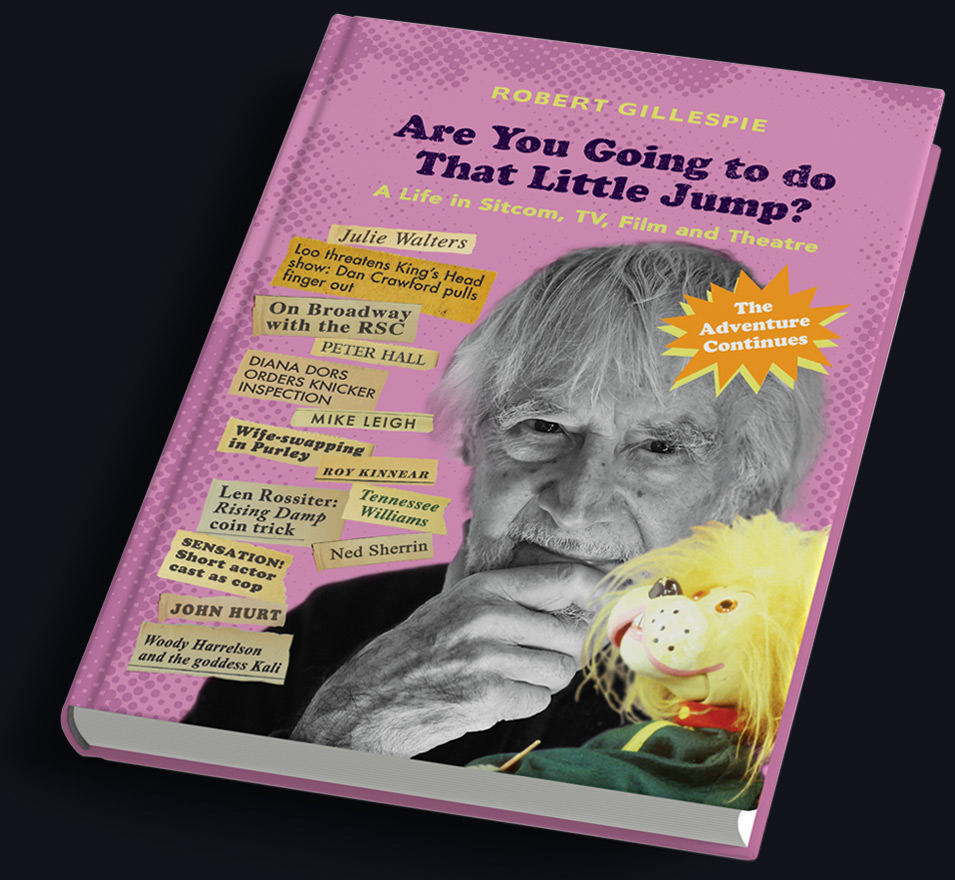A double-bill by George Bernard Shaw
Directed by Robert Gillespie
Performed at the Tristan Bates Theatre, January 6th to January 31st 2015
Village Wooing
Cast
A: Mark Fleischmann
Z: Madeleine Hutchins
Anything can happen on a cruise ship. In this case A, an upper class, educated travel writer who would just like to work in solitude meets Z, a chatty phone operator with a mission to marry him. Despite his initial reluctance, he is gradually drawn into conversation, although he clearly feels that she is socially beneath him. In scene 2 they meet again by accident in her workplace, a village shop on the Wiltshire Downs. A is persuaded to buy the shop and become her employer. Here he learns “more in three months than he did in three years at Oxford,” but the two continue to spar with each other. However, we soon understand that they have more in common than any profound differences between them – and they decide to get married.
Shaw’s play came across a little like Pygmalion in reverse. Whereas the earlier play has Eliza Doolittle wanting to pass off as a duchess, and hence opting to be taught by Professor Higgins, Village Wooing has A learning a lot about the realities of the workaday world, and how in many ways it is superior to the cerebral yet precarious life of a poet and sometime travel writer. A still pontificates about the delights of poesy, but in truth he is far more at home wearing a shopkeeper’s apron and exchanging pleasantries with the customers.
Written nearly two decades after Pygmalion, Village Wooing reveals Shaw in more expansive socialist mood, as he understands how the village shop and those associated with it form the backbone of a stable society. At the same time the play offers great opportunities for actors to display their verbal skills, as they engage in a perpetual game of cut-and-thrust, each trying to score points off the other while thoroughly enjoying themselves.
How He Lied to her Husband
Cast
Aurora Bompas: Viss Elliot Safavi
Henry Apjohn: Josh Harper
Teddy Bompas: Alan Francis
This three-character play is set in the drawing room of a flat located on Cromwell Road in London. Shaw describes Henry Apjohn as “a very beautiful youth, moving as in a dream, walking as on air,” while Aurora Bompas has “an air of being a young and beautiful woman but as a matter of hard fact she is, dress and pretensions apart, a very ordinary South Kensington female of about 37, hopelessly inferior in physical and spiritual distinction to the beautiful youth.” The third character is Aurora’s husband Teddy, “a robust, thick-necked, well groomed city man, with a strong chin but a blithering eye and credulous mouth.”
Aurora is distressed because she has misplaced some poems, in which she is identified by name, written for her with declarations of love by the impetuous Henry. She suspects her sister-in-law Georgina stole them from her workbox and is concerned she will read them to Aurora’s husband Teddy.
Henry suggests they confront Teddy with the truth, “quietly, hand in hand” and depart – “without concealment and subterfuge, freely and honestly, in full honour and self-respect” – for their planned evening at the theatre. (Henry has purchased tickets for Candida – the popular Shaw comedy which Henry and Aurora’s situation closely resembles – because Lohengrin was sold out.) The two engage in a discussion about the merits of revealing their affair until Teddy arrives and confronts Henry with his poetry.
The young man tries to convince him they were inspired by Aurora, the goddess of dawn, rather than his wife, and assures him he has no interest in the woman Teddy married… which the cuckolded man finds so insulting he demands Henry admit how desirable Aurora is. Henry finally confesses his love for Aurora, which pleases Teddy so much he proposes he have the poems published on “the finest paper, sumptuous binding, everything first class” as a tribute to his wife. “What shall we call the volume?,” Teddy asks. “To Aurora, or something like that, eh?,” to which Henry replies, “I should call it How He Lied to Her Husband.”

